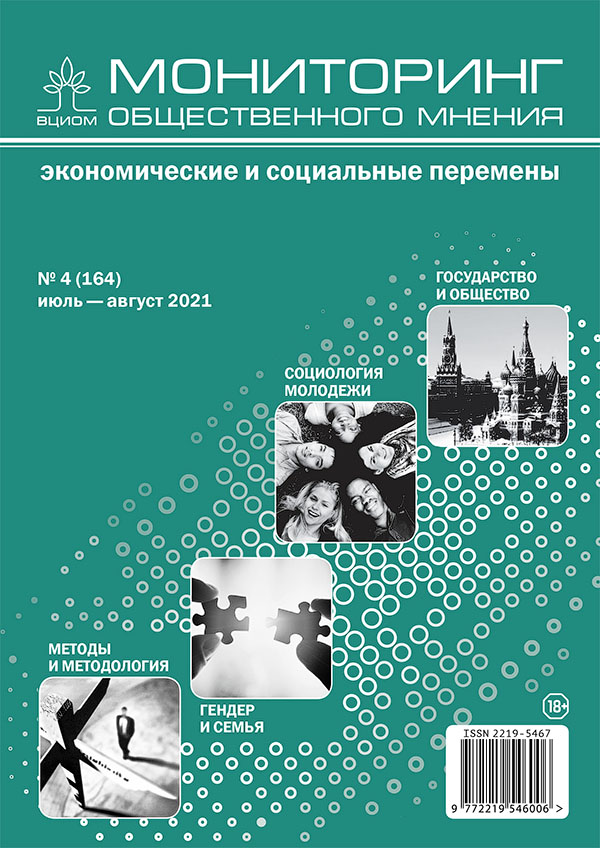Восприятие беспорядка и социальный контроль в новых жилых массивах: опыт социологического исследования
DOI:
https://doi.org/10.14515/monitoring.2021.4.1918Ключевые слова:
социальный беспорядок, физический беспорядок, жилой комплекс, местный контроль, публичный контрольАннотация
В статье изучается восприятие безопасности, социального и физического беспорядка жильцами, а также возможных предпринимаемых ими форм социального контроля этого беспорядка в двух анклавных соседских поселениях. Опираясь на теоретические основания изучения беспорядка и социального контроля, мы проверили ряд гипотез на материалах анкетного опроса жильцов двух жилых комплексов — «Северная долина» на периферии Санкт-Петербурга и «Семь столиц» в Ленинградской области. Мы рассмотрели связь демографического, социального и экономического состава жильцов с ощущением безопасности; связь ощущения безопасности резидентов с тем, какой порядок они наблюдают — социальный или физический, а также каково состояние социального контроля в случае правонарушений или нарушений социальных норм.
Методами обработки данных послужили описательная статистика (тест хи-квадрат, t-test, ANOVA) и бинарная логистическая регрессия. В результате мы пришли к выводам, что (1) наличие детей ведет к большей тревожности по поводу безопасности территорий; (2) недостаток мест для безопасных вечерних прогулок, проблемы с преступностью и нарушения общественного порядка снижают субъективную безопасность жильцов; (3) жильцы не различают угрозу от социального и физического беспорядка, для них важно, несет ли нарушение потенциальную угрозу для личной безопасности; (4) серьезные нарушения физического порядка создают общее ощущение нарушения норм разного типа, в том числе в форме преступлений; (5) социальный капитал не связан с местным контролем над беспорядком; (6) готовность к местному контролю связана с воспринимаемой безопасностью только в случае нарушений социального порядка; (7) недостаток публичного контроля (оперативности полиции) может компенсироваться местным контролем со стороны жильцов.
При сопоставлении эффектов было обнаружено, что воспринимаемая безопасность связана с наблюдаемыми нарушениями физического порядка, готовностью отпускать ребенка на прогулку одного, наработанным социальным капиталом резидентов, а также продолжительностью их проживания на конкретной территории.
Загрузки
Опубликован
Как цитировать
Выпуск
Раздел
Лицензия
Copyright (c) 2021 Мониторинг общественного мнения: экономические и социальные перемены

Это произведение доступно по лицензии Creative Commons «Attribution-NonCommercial-ShareAlike» («Атрибуция — Некоммерческое использование — На тех же условиях») 4.0 Всемирная.






